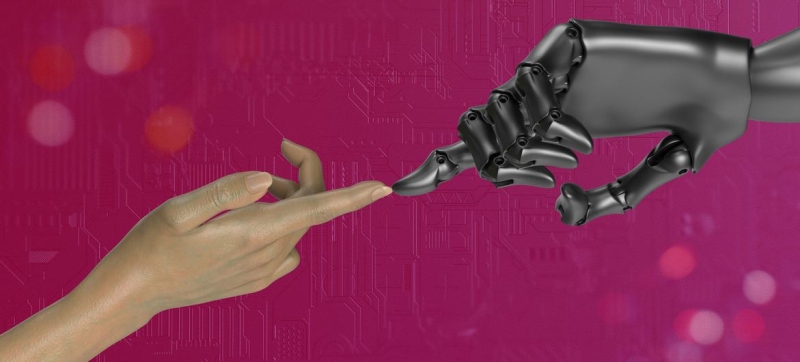
The UN Security Council discussed issues of artificial intelligence. UN chief on the future of AI: progress and new challenges for humanity Peace and security
Artificial intelligence (AI) is not just changing our world – it is revolutionizing it. This was stated by the UN Secretary-General on Thursday, speaking at the Security Council ministerial meeting on artificial intelligence, which was chaired by US Secretary of State Antony Blinken.
The Secretary-General recalled that in July 2023, he had already warned the Council about the speed of AI development, stressing that the pace of this progress will only increase.
Rapid development of technologies
He noted that modern AI models are becoming more powerful, versatile, and accessible. Tasks that previously required years of experience are now completed in a matter of moments. But the rapid growth of technology is “outpacing our ability to regulate it,” raising questions about accountability, equality, safety and maintaining human control.
“AI without human control will leave the world ‘blind’ – especially on issues of global peace and security,” the UN chief has warned.
Read also:
Seven areas where AI will transform science and technology
At the same time, he said, AI tools are already providing benefits in countries suffering from conflict and instability, such as mine clearance or forecasting hunger.
Risks to International Security
However, AI also poses a threat to global stability. The Secretary-General expressed concern about the use of AI for military purposes.
“Recent conflicts have become a testing ground for the military applications of AI,” he said, adding that systems such as autonomous border surveillance and predictive policing raise fundamental questions about human rights and the rule of law. According to him, the arms race in AI creates the conditions for miscalculation and error.
“Most importantly, AI undermines the fundamental principle of human control over the use of force,” the Secretary-General emphasized. He also warned of the catastrophic consequences of introducing AI into the management of nuclear weapons, which “we must prevent at all costs.”
Information warfare and environmental risks
In addition, AI poses a threat to information integrity. The UN chief noted that the technology is used to create realistic “deepfakes” that can “provoke diplomatic crises, undermine stability and the foundations of societies.” He emphasized that these tools can be used to manipulate public opinion and spread disinformation.
Another important aspect is the environmental footprint of AI. The Secretary-General drew attention to the high energy consumption of data centers and competition for scarce resources, which causes geopolitical tensions.
AI Regulation
“Unprecedented challenges require unprecedented global cooperation,” the Secretary-General said. He noted the UN’s efforts to develop a universal strategy, including two General Assembly resolutions on cooperation and regulation of AI, the creation of an AI advisory body, and the adoption of the Global Digital Compact.
“Our next steps will be decisive – and the choices we make today will determine our future,” Guterres stressed. AI, as the Secretary-General noted, can either serve humanity or become a source of instability and threats.
He called on Member States to immediately establish an International Scientific Panel on AI and launch a Global Dialogue on AI Governance. The UN chief also reiterated his call for the global community to ban autonomous weapons by 2026.
“I call on you to join forces for a safe, stable and inclusive future of AI,” he stressed.
Humanity at a Crossroads
Professor Fei-Fei Li of Stanford’s Human-Centered AI Institute has been studying and developing AI technologies for over 25 years. According to her, humanity has never in its history been “at such a unique intersection of scientific opportunity and global responsibility.”
Professor Li’s recent work has focused on a new technology – spatial intelligence in the era of generative AI. This is how AI systems interact with the three-dimensional virtual and physical world. This technology can bring not only benefits to humanity, but also new threats, the expert emphasized.
She drew attention to such negative aspects as algorithmic bias, disinformation, and the use of autonomous systems. “But we still have a lot to understand about the scale of these dangerous phenomena and their consequences,” the speaker noted. These problems can only be overcome through global cooperation, she said.
AI as the engine of a ‘new era of Enlightenment’
Yann LeCun, a renowned scientist who is responsible for the implementation of AI technology at Meta, the owner of Facebook and Instagram, also spoke at the Security Council meeting. He noted that AI will become ubiquitous in the coming decades: virtual assistants based on smart devices will accompany people in their daily lives, providing instant access to information in any language.
Lecun also emphasized that the future of AI is inextricably linked with the openness of technology. He highlighted the success of Meta’s open-source Llama model, which has been downloaded 650 million times since its launch in 2023, powering tens of thousands of applications in fields ranging from agriculture to healthcare.
Lecun noted that current AI systems are limited in their capabilities: they have no memory, do not understand the real world, and cannot plan. However, in the coming decades, these limitations will be overcome, and AI will become a powerful tool for solving global problems such as climate change and the fight against chronic diseases.
Yann LeCun compared the impact of AI to the invention of the printing press, calling it a possible catalyst for a “new Age of Enlightenment.” He called on the international community to join forces to develop open AI models that will become a common resource for humanity and an engine of global progress.
